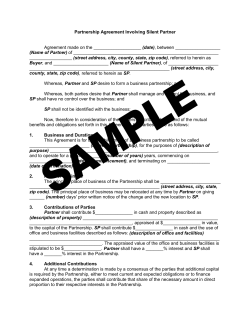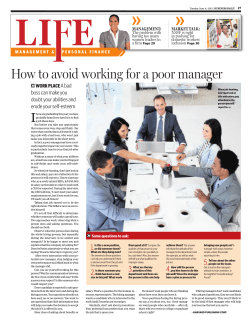
( I )
( I) S a m p l e C a s e Mr Wu is 25 years old and has been working in a small trading firm for two years since graduating from university. His present salary is HK$20,000 (which is expected to rise at an annual compound rate of 2%). In the evening, he works part-time at a tutorial school, earning HK$5,000 per month. In addition, he also does some freelance accounting work at weekends and makes an average of HK$8,000 each month. The reason that Mr Wu works so hard is that he wants to buy his own flat, as he observed a rapid rise in Hong Kong's property price in the past few years. Mr Wu's 48-year-old mother works as a clerk in a local department store. Her monthly salary is HK$12,000 (which is expected to rise at an annual compound rate of 2%). Mr Wu now lives with his mother in a rented private apartment. The rent for this 10-year-old property is HK$6,000 a month. Mr Wu wants to improve his and his mother's living standard, and hopes that in two years' time they could move into a bigger apartment of a monthly rent of around HK$10,000. Then he would buy a 600 sq ft residential unit by mortgage installment 5 years from now, which would cost about HK$2,500,000 at the current market rate. He would still live with his mother so that he could take care of her. Mr Wu needs to set aside money to pay for the first instalment on the purchase of the property. As banks must observe a maximum loan-to-value ratio, they can only provide a mortgage of 70% of the property value. That means Mr Wu needs to put up HK$750,000 himself. For a 120-installment mortgage on the property and other expenses, the monthly repayment amount would come to HK$16,400. In addition, he estimates decoration of his new home and its furniture would cost about HK$250,000. Wu's mother has also decided that she will take HK$100,000 from her own savings to support her son in purchasing the property. Mr Wu is extremely confident that he has mastered excellent investment skills. Last year he made handsome returns on his investments. But due to his busy job, Mr Wu had suffered from investment loss occasionally. Despite this, he still strongly feels that he could achieve his aim of saving HK$1,000,000 to buy a house more easily by investment, instead of by working only. Therefore he plans to increase his investment in Hong Kong stock market by $20,000 annually, and maintain a cash level of $30,000. After purchasing his own flat/apartment, he will save $200,000 to continue investing in Hong Kong stock market, expecting an average annual return rate of 20%. At the moment, Mr Wu gives his mother HK$4,000 a month as housekeeping money. He estimates that he needs to set aside only HK$5,000 each month for his own expenses. He will put the surplus into a bank savings account, after all the other necessary home expenses. HSBC Young Financial Planner Competition 2010 1 28 Jun 2010 Seminar Illustration At the moment, neither Mr Wu nor his mother has any insurance. One of his best friends, who currently works as a financial consultant in an insurance company, advises him that he should consider some insurance products which would not only provide him with protection, but could also be used as a means of saving money. Mr Wu has now been convinced that insurance is important. His friend recommends a policy which would pay him HK$1,000,000 when the policy matures in 20 years. But he would need to contribute HK$3,700 a month. Since taking out the policy would affect his investment resources and also living standard, Mr Wu needs to think carefully before making any decision. Please design a sound financial plan for Mr Wu. Note: As this case assumes no inflation, there is no need to carry out present value calculations. HSBC Young Financial Planner Competition 2010 2 28 Jun 2010 Seminar Illustration Financial Statement Expenses Living Expenses Personal expenses Rent Utility bills Housekeeping money Salary tax MPF contribution Income surplus Assets Investment Stocks MPF Income statement of Mr Wu $ Income $ Principal Income 60,000 Mr Wu (salary plus bonus) 260,000 72,000 Mr Wu (part-time salary) 156,000 18,000 48,000 Investment Proceeds 32,300 Bank interest 100 19,800 Return on stock investment 35,000 201,000 451,100 451,100 Balance Sheet of Mr Wu $ Liabilities Current Liabilities 100,000 Credit card balance 80,000 Outstanding utility bills $ 2,500 1,400 (Principal plus return) Current Asset Savings account deposits Cash Total Assets 120,000 Net Worth 30,000 326,100 330,000 Total Liabilities 330,000 Note: All the above figures are expressed at present value. HSBC Young Financial Planner Competition 2010 3 28 Jun 2010 Seminar Illustration (2) 2009 Reference Financial Case Mr Ko is 29 years old. Since graduating from university, he has been working in an internationally-renowned logistics company. Although the logistics industry is facing a relatively difficult operating environment at the moment, his employer has no plans to cut staff. Recently, Mr Ko even got promoted and was awarded a pay rise for his good performance. His current monthly salary is HK$25,000 and he expects a 2% increase in salary each year. He lives with his 58-year-old father and 55-year-old mother in a public housing unit. The monthly rent is HK$2,300. His father is still working and earns HK$8,000 a month. As his family’s income exceeds the maximum income limit for public housing residents, they will have to pay 1.5 times the net rent starting from next year. Mr Ko’s parents like their present unit very much, but Mr Ko is reluctant to pay 1.5 times the net rent. Furthermore, now that property prices have fallen quite a bit, he has decided to buy a flat on the secondary private property market at a price around HK$1,200,000 and take out a mortgage worth 95% of the property’s purchase price. He plans to move into the flat when he gets married later. At the moment, Mr Ko gives his parents HK$6,000 every month to cover the household expenses. After buying his own property, he intends to reduce that monthly amount to HK$2,000. By that time, his father will have to take care of the rent for the public housing unit, which Mr Ko pays for the family at the moment. Mr Ko’s girlfriend, Miss Chan, is 23 years old and works in an import and export company. Her monthly salary is HK$18,000, and each year she receives a pay increment of about 2%. Mr Ko and Miss Chan planned two years ago to get married in 2011. They have a joint bank account and each of them deposits HK$3,000 into the account every month. The account has now accumulated a balance of HK$144,000. They also jointly own some stocks and fund investments. The market value of these investments is about HK$150,000. They also own HK$60,000-worth of Renminbi bonds. They estimate that before they get married, besides funding the purchase of the property, they need to set aside another HK$250,000 for various expenses, including the wedding, decoration of the flat, honeymoon etc. Miss Chan has a strong interest in finance and hopes to pursue her future career in the finance sector. Although the prospects of the financial services industry look rather grim at the moment, she has confidence in the industry’s long-term prospects. HSBC Young Financial Planner Competition 2010 4 28 Jun 2010 Seminar Illustration To get prepared for the change in career, she intends to take up a distance learning Masters programme in financial management in a year’s time. The tuition fee for the two-year programme is HK$180,000. Miss Chan projects that she will be able to change job and get promoted to a managerial position within three years after completing the programme. By then, her monthly salary is expected to increase to HK$35,000. Since their financial plan requires a substantial amount of cash, Mr Ko and Miss Chan would like to seek appreciation in capital over the shortest possible time through investment. They are aware that stock prices have gone down significantly from previous high levels. Furthermore, stock market commentators are saying on television that the worst moments are over, and it is time to get into the market. So they plan to invest all their bank savings and cash in the stock market, hoping to earn 100% return within one or two years, in order to meet their considerable future expenses. Please design a sound financial plan for Mr Ko and Miss Chan. Note: As this case assumes no inflation, there is no need to carry out present value calculations. HSBC Young Financial Planner Competition 2010 5 28 Jun 2010 Seminar Illustration Financial Statement Expenses Living Expenses Food Medical Bills Transport Housekeeping Money Salary Tax Entertainment and Clothing MPF Contribution Miscellaneous Expenses Rent Savings Account Deposits Income Surplus Assets Investment Stocks and Funds Renminbi Bond MPF (Principal plus return) Current Assets Savings in Bank Cash Income Statement of Mr Ko and Miss Chan Income $ Principal Income 36,000 Mr Ko (salary plus bonus) 4,800 Miss Chan (salary plus bonus) 40,000 72,000 Investment Proceeds 15,000 Stock Trading 110,000 Bank Interest 22,800 22,000 27,600 72,000 151,920 574,120 325,000 234,000 15,000 120 574,120 Balance Sheet of Mr Ko and Miss Chan $ Liabilities Current Liabilities 150,000 Credit Card Balance 60,000 156,000 144,000 Net Worth 60,000 Total Assets $ $ 5,500 564,500 570,000 Total Liabilities and Wealth 570,000 Note: All the above figures are expressed as present value. HSBC Young Financial Planner Competition 2010 6 28 Jun 2010 Seminar Illustration
© Copyright 2025












